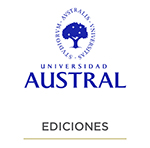Justice and Punishment in "The Divine Comedy"
Abstract
Dante guides us through Inferno, Purgatorio, and Paradiso, showing us the consequences of our actions. Thus, knowing the punishments that correspond to bad deeds, men can straighten up and seek to act correctly in order to be pleasing to God’s eyes.
Through the analysis of the poem, we will study whether sin impoverishes the dignity of the sinful man, and how that dignity can be restored. We will also analyze whether punishment is necessary in the face of wrongdoing, what is the basis and nature of that punishment, and what should be the measure of retribution. Once we arrive at the Purgatory, we will discuss the important question of forgiveness and its relationship with justice.
These are the questions on which we will reflect throughout this work and which undoubtedly shed light on any conception of justice and human punishment. We will begin by explaining the structure of the work, continue with an analysis of each of its parts and stop to study the Inferno and the Purgatorio.
Thus, walking along with Dante, we will be able to learn more about God’s justice.
Downloads
References
Alighieri, D. (1912). La Vida Nueva. Montaner y Simón editores.
Alighieri, D. (1984). La Divina Comedia. Infierno. Asociación Dante Alighieri.
Alighieri, D. (2012a). La Divina Comedia. Infierno. Losada.
Alighieri, D. (2012b). La Divina Comedia. Purgatorio. Losada.
Alighieri, D. (2012c). La Divina Comedia. Paraíso. Losada.
Alighieri, D. (2014). Epístolas. En Opere (Vol. II). Mondadori.
Alighieri, D. (2015a). La Divina Comedia. Infierno. Edhasa.
Alighieri, D. (2015b). La Divina Comedia. Purgatorio. Edhasa.
Alighieri, D. (2018). Epístolas. En: Mutatis Mutandis: Revista Internacional de Filosofía, (10), 143-176.
Anselmo de Canterbury. (1970). Proslogión. Aguilar.
Aparicio Ruiz, S. (2016). La idea de la Justicia de Dante Alighieri. De Medio Aevo, 5(2), 9-36.
Arendt, H. (2018). Responsabilidad y juicio. Paidós.
Aristóteles. (2007). Ética nicomaquea. Losada.
Auerbach, E. (2007). Dante. Poet of the secular world. New York Review Books.
Borges, J. L. (2018a). Siete Noches. La Divina Comedia. Sudamericana.
Borges, J. L. (2018b). Ensayos dantescos. El Verdugo Piadoso. Sudamericana.
Catecismo de la Iglesia Católica
Casaubon, J. R. (2016). La misericordia como plenitud de la justicia. XLI Semana Tomista – Congreso Internacional, 2016. Sociedad Tomista Argentina. Facultad de Filosofía y Letras, Universidad Católica Argentina. Buenos Aires, Argentina, del 12 al 16 septiembre de 2016. https://repositorio.uca.edu.ar/bitstream/123456789/3708/1/misericordia-plenitud-justicia-casaubon.pdf.
Codesido, E. y De Martini, S. M. A. (2005). El concepto de la pena y sus implicancias jurídicas en Santo Tomás de Aquino. El Derecho.
Crespo, A. (1999). Dante y su obra. Acantilado.
Daigneault, A. (2005). The Good Thief. Xulon Press.
De Martini, S. M. A. (2013). Misericordia y justicia. Educa.
Kowalska, sor M. F. (2012). Diario. La Divina Misericordia en mi alma. Padres Marianos de la Inmaculada Concepción de la Santísima Virgen María.
Gilson, E. (2011). Dante y la Filosofía. EUNSA.
Graneris, G. (1973). Contribución Tomista a la Filosofía del Derecho. EUDEBA.
Hesíodo. (2006). Los trabajos y los días. Gredos.
Hernández de Lamas, G. (2016). La educación de la justicia: el contrapaso en la comedia dantesca. Prudentia Iuris, (82), 59-66.
Jaeger, W. (2012). Paideia. Fondo de Cultura Económica.
Juan Pablo II. (1980). Encíclica Dives in Misericordia. http://www.vatican.va/content/john-paul-ii/es/encyclicals/documents/hf_jp-ii_enc_30111980_dives-in-misericordia.html.
Juan Pablo II. (1984). Encíclica Reconciliatio et Paenitentia. http://www.vatican.va/content/john-paul-ii/es/apost_exhortations/documents/hf_jp-ii_exh_02121984_reconciliatio-et-paenitentia.html.
Juan Pablo II. (8 de mayo de 2002). Audiencia General. http://www.vatican.va/content/john-paul-ii/es/audiences/2002/documents/hf_jp-ii_aud_20020508.html.
Loney, A. y Scully, S. (Eds.). (2018). The Oxford Handbook of Hesiod. https://books.google.com.ar/books?hl=es&lr=&id=IZFlDwAAQBAJ&oi=fnd&pg=PA193&dq=five+essays+solon+eunomia+jaeger+german&ots=8komSdfy6o&sig=QHjHLMKgqCnPvizXxC-Dd1lQEsY#v=onepage&q&f=false.
MacIntyre, A. (1992). Tres versiones rivales de la ética: Enciclopedia, Genealogía y Tradición. RIALP.
Moeller, C. (1963). Sabiduría griega y paradoja cristiana. Editorial Juventud.
Ocampo, V. (1960). Motu proprio. Revista de la Universidad de México, (12), 25-28.
Papini, G. (1949). Dante vivo. Editorial Apolo.
Pérez Carrasco, M. (2021). La palabra deseada. La Divina Comedia en el mundo contemporáneo. Mardulce.
Pieper, J. (1972). Justicia y Fortaleza. RIALP.
Sófocles. (2015). Tragedias. Edipo Rey. Gredos.
Tomás de Aquino. (s.f.-a). Comentario al Salmo 50. http://hosted.desales.edu/w4/philtheo/loughlin/ATP/Psalm_50.html.
Tomás de Aquino. (s.f.-b). Comentario a las Sentencias de Pedro Lombardo (Sent.) Tomás de Aquino. (1951). Suma Contra Gentiles. Club de Lectores.
Tomás de Aquino. (1959). Suma Teológica. BAC. https://www.corpusthomisticum.org/snr.html.
Tomás de Aquino. (1994). De Malo. Editorial Universitaria.
Van Havre, D. (2015). La confesión explicada hoy. Los beneficios del sacramento de la reconciliación. RIALP.
Copyright (c) 2022 Lucía María Traverso

This work is licensed under a Creative Commons Attribution-NonCommercial-NoDerivatives 4.0 International License.
This license allows the copy, distribution, exhibition and representation of the work provided authorship is acknowledged and the work is properly quoted. Commercial use of the original work or the generation of derived works are not allowed.
The authors hereby guarantee the right to the first publication of the work to the Revista Jurídica Austral.
















































